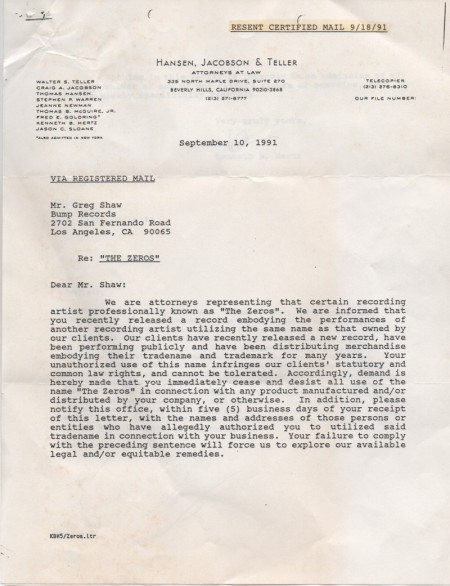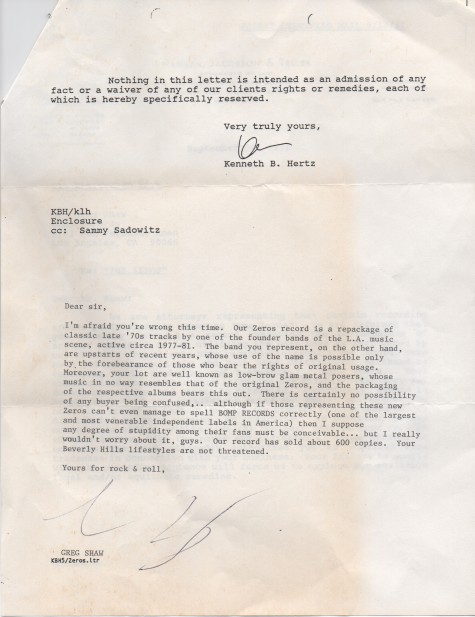-
Featured News
Shel Talmy: August 11, 1937 – November 14, 2024
 By Harvey Kubernik
The legendary and influential record producer Shel Talmy passed away in mid-November from a stroke at age 87.
Talmy arranged and produced the Kinks recordings 1964-1967, “My G
By Harvey Kubernik
The legendary and influential record producer Shel Talmy passed away in mid-November from a stroke at age 87.
Talmy arranged and produced the Kinks recordings 1964-1967, “My G -
Featured Articles
The Beatles: Their Hollywood and Los Angeles Connection
 By Harvey Kubernik
JUST RELEASED are two new installments of the Beatles’ recorded history, revised editions of two compilation albums often seen as the definitive introduction to their work.
Or
By Harvey Kubernik
JUST RELEASED are two new installments of the Beatles’ recorded history, revised editions of two compilation albums often seen as the definitive introduction to their work.
Or -
One Dozen Picked Berries: 12 Great Chuck Berry Covers
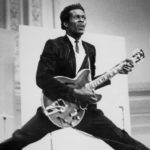
By Doug Sheppard
The musical, cultural and societal waves that Chuck Berry made by pioneering rock ’n’ roll could fill a book. And of course, there are so many great songs—brilliantly executed, simple yet evocative vignettes that in turn provided inspiration and cover fodder for countless bands down the road. As we mark his passing, the time is right to revisit the best Berry covers.
Lists like this tend to be a few obvious choices coupled with an avant-garde rendition and/or an unexpected version by an artist (usually a pop crooner) to prove how great the song is. I’m sure there’s a stunning Chinese Sanskrit version of “Johnny B Goode” played on exotic instruments and probably even a reggae remake of “Jo Jo Gunne,” but I don’t care. To me, it’s all about the rock ’n’ roll. Rather than researching, I listed the first 12 that popped into my head; after all, if a song isn’t memorable, then how good is it?
As the list emerged, so did a theme: The greatest Berry covers tend to be spontaneous, or at least remade in the spirit of fun—much like Chuck’s originals. Maybe I missed something. Maybe I didn’t. Is this list definitive? At least in your mind if you want it to be.
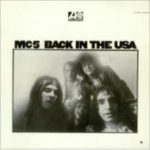
1) THE MC5: “Back in the USA” (1970)
The trebly highs, lack of bass and neutered guitars of Jon Landau’s botch-job production nearly ruined Back in the USA, but it’s a great album nonetheless—and the Berry cover seems to make the perfect title track. With the Five having fought the law, the record company, Hudson’s and society in general, one can’t help but note the irony when Rob Tyner sings “I’m so glad I’m living in the USA” followed by the more emphatic “I’m so glad I’m living in the USA.” Sarcastic or not, the insistent background vocals, wind-chime piano and ripping guitar solos imply a good time. “Detroit, Chicago, Chattanooga, Baton Rouge” indeed.
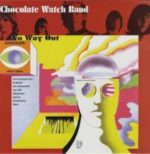
2) THE CHOCOLATE WATCHBAND: “Come On” (1967)
The Chocolate Watchband had a way with covers, besting the Tongues of Truth on “Let’s Talk About Girls” and the Brogues with “I Ain’t No Miracle Worker,” possibly even the Kinks with “I’m Not Like Everybody Else.” Another fine moment was “Come On,” likely inspired by the Rolling Stones’ version from four years earlier. But whereas the Stones’ take moves like an English sports car, buzzing adroitly like an Aston Martin, the Watchband remake ups the tempo and speeds smoothly like a ’66 Corvette, pulsed by Gary Andrijasevich’s drumming and the deadly harp/vocal whammy of Dave Aguilar.
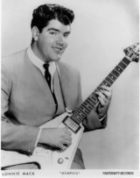
3) LONNIE MACK: “Memphis” (1963)
From Cincinnati by way of rural Indiana, Lonnie Mack turned “Memphis, Tennessee” into a melodic marvel on this instrumental remake that landed him his first hit in 1963. Mack’s fluidity on the Flying V is infectious and, even more remarkably, this was recorded as an afterthought when he had 20 minutes of studio time remaining from a session he’d played on.

4) JOHNNY WINTER: “Thirty Days” (alternate version) (1974)
Don’t you hate it when lists have some obscure demo version of a song available only on an obscure album? So do I, but there’s no way around it in this case. The Johnny Winter version of “Thirty Days” that ended up on Saints & Sinners is good, but it can’t compare to this alternate. This version, which appeared on Legacy’s A Rock ’n’ Roll Collection in 1994, rips with Johnny’s badass vocals, trademark white-lightning guitar solos and a rough rhythm section. Sounds like an on-the-spot first take, which may be why it initially didn’t come out.

5) DAVE EDMUNDS: “Promised Land” (1971)
Dave Edmunds took one look at the emergent studio sophistication of the ’70s and responded with Rockpile, an album flaunting simplicity in sound and production—including this killer Berry cover drenched in reverb and Dave’s verve for primal rock ’n’ roll.
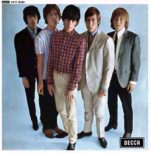
6) THE ROLLING STONES: “Around and Around” (1964)
The Stones’ love of Berry is well-known, from the faithful remake of “You Can’t Catch Me” on Now! to the Altamont-era live renderings of “Carol” and “Little Queenie.” But the pinnacle of their Chuck fetish was this killer romp from Five By Five and 12X5. In hindsight, one can hear how they were on the verge of parlaying their Berry and Chess blues fandom into something entirely their own.

7) THE YARDBIRDS: “Jeff’s Boogie” (1966)
Credited to Jeff Beck as an “original,” but we all know that this was “Guitar Boogie” retitled, right? Jeff’s licks are at the forefront, but don’t underestimate drummer Jim McCarty’s swinging beat, which makes the engine purr.

8) MOUNTAIN: “Roll Over Beethoven” (Flowers of Evil live version) (1971)
Sidelong tracks rarely work, but “Dream Sequence”—side two of 1971’s Flowers of Evil—is one of them, mainly because it’s several songs strung together rather than a long jam. As Corky Laing and Felix Pappalardi drive harder than a Mack truck on the Long Island Expressway, Leslie West piles up guitar riffage and fireworks, including a heavier than heavy “Roll Over Beethoven” that shreds ELO’s version like a lawnmower over grass. (Legacy later isolated “Roll Over Beethoven” as a single track for 1995’s Over the Top double-CD compilation.)
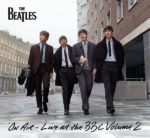
9) THE BEATLES: “I’m Talking About You” (1963)
While some are partial to studio creations like “Rock and Roll Music” and “Roll Over Beethoven,” to me the Fab Four’s best stab at Berry was a 1963 BBC Saturday Club rendition of “I’m Talking About You.” With one foot in their raw Hamburg past and the other in their British invading future, this R&B-soaked stomper (found on On Air — Live at the BBC Volume 2) should put to rest any notions that the Beatles were tame.

10) THE FLAMIN’ GROOVIES: “Carol” (1970)
The flame of rock ’n’ roll may have flickered and dimmed in the early 1970s, but its spirit lived in the Flamin’ Groovies, who did a bang-up job on Berry with this Matrix rehearsal. “Carol” represents everything that made the early Groovies great: Roy Loney’s rockabilly-esque vocals, piston-popping rapid-fire guitars by Cyril Jordan and Tim Lynch and the tribal pound of Danny Mihm and George Alexander.
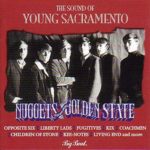
11) THE WALKING FLOUR: “I Want to Be Your Driver” (1967)
Hundreds if not thousands of American teens covered Chuck in the garage band era, but none were as forthright as this short-lived Sacramento, California quintet. “I Want to Be Your Driver” stands out not only because it’s a lesser-known Berry side, but with red-on-the meter fuzz, organ and spasmodic Ringo-like drumming by a guy who would later play with Les Dudek. Initially unreleased but unearthed on Ace/Big Beat’s The Sound of Young Sacramento in 2000.

12) PAUL REVERE & THE RAIDERS: “Maybellene” (1964)
Also initially unreleased but far from obscure, this live rendition illustrates the flair that so many early ’60s Northwest bands (the Sonics’ version of “Roll Over Beethoven” also comes to mind) had for cover material. After an irreverent joke about Chuck’s brushes with the law, the Raiders kick in to a rearranged version of “Maybellene” that sets it to a “Memphis”-like swinging beat in lieu of the original’s two-step rhythm.
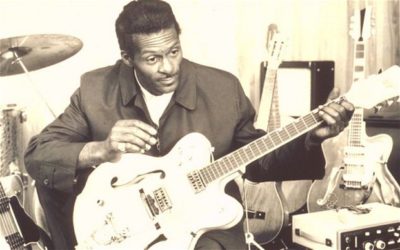
Reuniting With Reunions
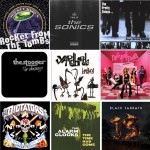
How Reunion Albums Hold Up, Plus Thoughts on the New Stones Album
By Doug Sheppard
We all want it so badly.
That Rolling Stones album that recalls the bluesy affirmation of their earliest work, when they reworked an American form into a new rocking blues hybrid that equaled and even surpassed their idols. One that reflects the turbulence of the times via indirect symbolism like “Jumpin’ Jack Flash” or Let It Bleed, or that takes that approach and slathers it in swagger and Southern hot sauce like Sticky Fingers. Or even one with the cold existentialism of “Doo Doo Doo Doo Doo (Heartbreaker),” a melodic marvel as hard as the pavement the boy chased right through the park hit after the bullet went through his heart.
That’s the Stones we think of—and how we want to remember them. Not by the glitzy celebrity of the past 30 years or so. Not by the umpteenth performance of “Start Me Up” with about as much emotional depth as their corporate tour sponsors. And certainly not by most of their post-1980 output (though this author has a soft spot for Steel Wheels).
So when there’s a new Stones album billed as a return to roots, covering some of their favorite lesser-known blues sides, naturally we stand up and take notice. And maybe, given our longing (see above), we cut ’em a little slack, concluding that they’ve succeeded.
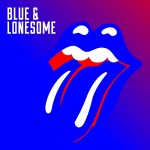
But have they? Not really. Sure, Blue & Lonesome is their best album in years, and the sound alone — not quite raw yet recorded live and spontaneously—is enough to garner excitement. The times when it hits are definitely worthy of the lips logo—such as the spunky versions of Howlin’ Wolf’s “Just Like I Treat You” and Lightnin’ Slim’s “Hoo Doo Blues,” if not the forthright opening salvo of “Just Your Fool,” one of four Little Walter covers. But more often than not, it’s the type of thing that would probably be great to witness live in the studio, but that one files away after a couple listens. Good but not great. As Hill Country DC talent buyer John O’Neill put it, “It’s a solid old man blues album that sounds like a thousand other releases from Alligator Records. So yeah, automatically the best Stones album in forever.”
The (over)reaction to the new Rolling Stones album typifies the response to many reunions. When legends come back and record new albums, many shower them in accolades. But while it’s easy to get caught up in the excitement of the here and now, the payoff is how it sounds years later. Curious to test this hypothesis, I went back and listened to 20 reunion albums to see how they hold up. I’ve divided them into four categories: “Reputation Upheld” to signify the ones that live up to the artist’s reputation; “Good” to denote ones that aren’t quite up to past standards, but are worth owning nonetheless; “Neither Here Nor There” for the ones that are OK but one would rarely play after a listen or two; and “Avoid” — which is self-explanatory. Expecting most to fall into “Neither Here Nor There,” I was pleasantly surprised in some cases.
Reputation Upheld
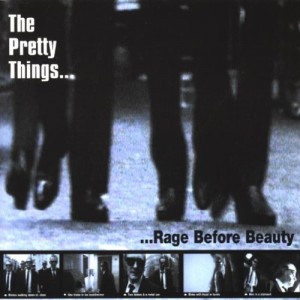
THE PRETTY THINGS – Rage Before Beauty (Snapper) 1999
Rage Before Beauty was the best Pretty Things album since Parachute because the band returned to their R&B roots—as reinventors, not as replicators. Rather than carbon copying their early sound, the Pretties updated it, channeling their old drummer on the Diddleybeat of “Vivian Prince” and adding a new element on the slower, impassioned tracks like “Pure Cold Stone,” “Goodbye, Goodbye” and “Fly Away.” The dramatic uptempo “Everlasting Flame” is one of the best tracks the Pretty Things ever cut, period. Not as enthusiastic about the covers of “Eve of Destruction” and “Mony Mony,” but playing this in sequence on the Bouquets from a Cloudy Sky box set illustrated what a dramatic return to form it was.
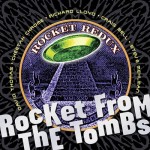
ROCKET FROM THE TOMBS – Rocket Redux (Smog Veil) 2004
Remakes albums are usually pointless, but this was different because Rocket from the Tombs had never recorded their songs properly in the first place. The late Peter Laughner is missed, but Richard Lloyd is a more than worthy replacement, and core members David Thomas, Cheetah Chrome and Craig Bell are in top form. And in Steve Mehlman, they found a drummer who was actually better than any from their original run. “Amphetamine” is superior to the original, and Chrome’s impassioned vocals on “Ain’t It Fun” are no slouch, either. When I’m in the mood for RFTT, I’m as likely to put this one on as I am the vintage recordings. Both followups, 2011’s Barfly and 2015’s Black Record, are worth owning as well.
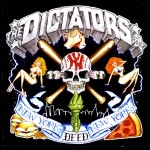
THE DICTATORS – DFFD (Dictators Multimedia/Norton) 2001
Not just a great comeback—but the best Dictators album, period. (Unless Manitoba’s Wild Kingdom, a Dics album in all but name, counts.) Whereas the first three albums had varying levels of inconsistency, there’s not a loser in the bunch here: from the full-on rockers like “I Am Right” and “Avenue A” to the melodic movers like “Pussy and Money” and “Who Will Save Rock and Roll?” Combine that with lyrics as sarcastic and Bronx bold as ever — and what’s not to love?
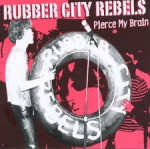
THE RUBBER CITY REBELS – Pierce My Brain (Smog Veil) 2003
Pierce My Brain was the album the Rubber City Rebels always wanted to make — or at least should have made: 35 minutes of no-holds-barred Raw Power-cum-Status Quo punk crunch and roll that goes all the way back to their King Cobra roots in execution. Longtime live favorite “Born Dead” finally got its first proper recording, and the title track, “I Don’t Wanna Be a Punk No More,” “Punk Daddy” and “Dead Boy” romp with the autobiographical hedonism of old. This came a quarter-century after it should have, but who’s complaining?
Good
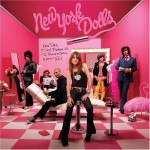
THE NEW YORK DOLLS – One Day It Will Please Us to Remember Even This (Roadrunner) 2006
Lacking three key members from the classic lineup (whose time on earth had tragically expired), David Johansen and Sylvain Sylvain were at a decided disadvantage when they conscripted new hires to cut this album. It’s obviously not as good as the original Dolls, but it’s also not the embarrassment some portrayed it as—even offering a few solid songs like the biting “I Ain’t Got Nothin’,” a ballad called “Plenty of Music” and two in the glam rock mold, “Fishnets & Cigarettes” and “Gotta Get Away from Tommy.” Much better than I remembered. (Or maybe that’s why I kept it?)
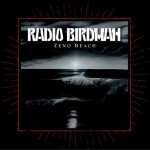
RADIO BIRDMAN – Zeno Beach (Yep Roc) 2006
Their goal was an album that would stand on its own rather than replicate past glories, and Zeno Beach did the job with a new rhythm section and a sound owing as much to Radio Birdman as it did to parallel bands like the New Christs and the Visitors. While this doesn’t quite have the impact it did when it landed with a killer (and first-ever) U.S. tour, it’s still a solid comeback sporting a few tracks—“You Just Make It Worse,” the title track and (in the tradition of “Man With Golden Helmet”) “The Brotherhood of Al Wazah”—as worthy as any in the Birdman canon.
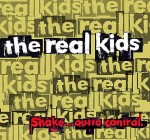
THE REAL KIDS – Shake … Outta Control (Ace of Hearts) 2014
Like Rocket From the Tombs, this second stab at a Real Kids reunion (the ’90s incarnation only managed an EP) succeeds in part because it comprises songs that were never recorded properly back in the day. The songs were worthy then and they’re worthy now—and I’m just as likely to put this one on as any other Real Kids album.
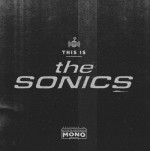
THE SONICS – This Is the Sonics (Revox) 2015
The Sonics knew what their fans wanted and gave it to them: the same type of raunchy, R&B-fueled Northwest rock that made ’em legends in the first place, all served up in mono. It’s the best record they could have made at this late juncture, and it’s all good fun, from the snarling covers of “Look at Little Sister” and “I Don’t Need No Doctor” to a small handful of new originals like “Bad Betty.” But no matter how many “picks up where they left off” reviews it gets, they’ll never replicate the feeling of their ’60s recordings, which relied as much on youthful energy as strong performances. It’s a nice gift to fans that’ll give the Sonics more to work with in their live shows than just their greatest hits, and maybe that’s enough.
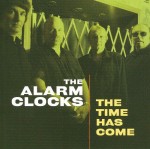
THE ALARM CLOCKS – The Time Has Come (Norton) 2006
Who would have thought that a band with only one single to their credit would reconvene 40 years later? Certainly not drummer Bill Schwark, who was stunned to learn there was still an audience for the Alarm Clocks when he gave his first interview on the subject to this author in 1997. But it was there, and the Clocks enjoyed every minute of it as original members Schwark, Mike Pierce and Bruce Boehm were augmented by guitarist Tom Fallon on this mostly original outing. “More Money” is better than 90 percent of the garage revivalists, “It’s About Time” rocks like the old single — and the entire affair was enough for the Clocks (with a new drummer) to continue with two more albums to date.

BLIND IDIOT GOD – Before Ever After (Indivisible Music) 2015
These avant-garde instrumentalists didn’t lose anything in the 20-plus years since their last album: Before Ever After stirs the pot with the same blend of prog, metal, postpunk and reggae that fired up their first three albums. But unlike bands who make the mistake of mixing all their influences together at once, Blind Idiot God knows how to use discretion: “Earthmover” would be at home on a modern doom metal album, the angularity of “Twenty Four Hour Dawn” would make Robert Fripp smile, the riff and melody of the reggae-fied “Ramshackle” invalidates the entire career of UB40 in one song, and the frenzied metallic cataclysms of “Antiquity” and “Under the Weight” recall the Blind Idiot God of old. Being housed in the coolest psychedelic album cover in recent memory is a nice touch.
Neither Here Nor There

THE STOOGES – The Weirdness (Virgin) 2007
Iggy’s reunion with the Asheton brothers and replacement Mike Watt on bass was absolutely transcendent live—at last giving the Stooges a chance to bask in overdue glory. They had fun in the studio, too, but unfortunately no songs. Tolerable enough, but the closest this overproduced outing comes to a decent song is “My Idea of Fun”—not coincidentally one of the few to make the live set.
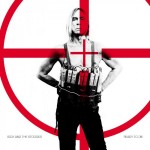
IGGY & THE STOOGES – Ready to Die (Fat Possum) 2013
Ready to Die accomplishes what The Weirdness couldn’t: the first truly good song of the Stooges’ reunion, a bluesy acoustic ballad called “Unfriendly World.” But that’s it for this near-reunion of the Raw Power lineup (sadly, Ron Asheton had passed before its recording), which mostly sounds about like The Weirdness. That is, not bad but nothing special.
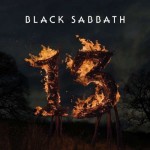
BLACK SABBATH – 13 (Vertigo/Republic) 2013
Bill Ward said he heard his style on this almost-reunion of the original lineup, but he’s wrong: ex-Rage Against the Machine drummer Brad Wilk isn’t in his league at all—playing in-the-pocket, almost basic beats with none of the fire of Ward’s slyly unpredictable, tempo-shifting patterns on classic Sabbath albums. It’s almost enough to derail the entire proceedings, but Rick Rubin did get a good sound — and jams between Tony Iommi and Geezer Butler are always worth hearing. The songs, however, don’t quite click—making 13 the equivalent of a fireworks display: exciting for a few moments, but not a lasting memory. By the time Black Sabbath toured, they had Tommy Clufetos on the traps—a major improvement that one hopes will carry over to any further reunion efforts. That is, unless there’s an even better development: bringing back Bill.

THE YARDBIRDS – Birdland (Favored Nations) 2003
Heavy on remakes and celebrity guest slots, which were undoubtedly a selling point for this one, Birdland nonetheless does have a few decent new originals in “Please Don’t Tell Me ’Bout the News,” “Mr. Saboteur” and “My Blind Life,” which has a cameo by their old guitarist, Jeff Beck. Like the live performances by the reborn ’Birds, it’s not extraordinary the way their ’60s records were, but it’s worthy of the Yardbirds name.
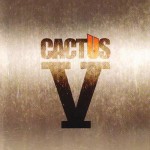
CACTUS – V (Escapi) 2006
To their credit, three-fourths of the original Cactus (Rusty Day having passed away in 1982) didn’t try to make another heavy rock record on this comeback—favoring a bluesy approach more befitting their advanced age. It’s not the most imaginative album, but they’re clearly having fun, the live shows to support it were great (saw two myself), and there is one bonafide great song: the boogie-rocking “Cactus Music.”
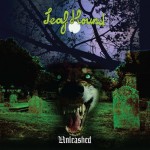
LEAF HOUND – Unleashed (Repertoire) 2007
Leaf Hound had less to live up to than anyone else in this column; contrary to record collector myth, Growers of Mushroom is not a “great” album, nor is it in any way on the level of Led Zeppelin. Heck, even comparing it to Budgie would be a stretch. But the best Leaf Hound holds up reasonably well, and this is a reasonably decent comeback by original lead singer Peter French (whose pipes are intact) and three new sidemen. Essentially standard-issue barband hard rock, “Barricades” and “Too Many Rock ’n’ Roll Times” might have made a nice single—though one need not hear an entire album’s worth of the reborn Hound.
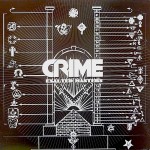
CRIME – Exalted Masters (Crime Music) 2007
Cutting old songs that hadn’t been properly recorded, Crime did get a good sound in the studio on this comeback. But its most memorable moment is a spoken-word vignette set to music, “Ports of Hell,” and it’s probably only memorable for that reason. As the saying goes, for completists only.
Avoid

THE BOYS – Punk Rock Menopause (Wolverine) 2014
The Boys’ produced some of the best (and sadly, often overlooked) UK punk of the class of 1977, but the excitement in their first album in 34 years ended with its release. In spite of three original members and some snappy artwork, there’s nothing here other than languid tempos and ordinary songs. “Organ Grinder” is about the closest it comes to recapturing the Boys at their peak—but even that might be generous. Oh well.
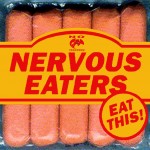
NERVOUS EATERS – Eat This! (No Tomorrow) 2003
“Just Head” is one of the greatest rock ’n’ roll records ever to come out of Boston—or heck, just about any city. Which is why it’s so painful to note that there’s nary a hint of what was on this utterly unremarkable comeback album. Better to hear their other (now forgotten) comeback, 1986’s Hot Steel and Acid.

THE REZILLOS – Zero (Metropolis) 2015
This classic UK punk band’s live show is still great, but the studio product of their ongoing reunion is not. As Jack Rabid observed in issue #77 of The Big Takeover: “Sadly, this album is well-named. … The band riffs it up, but listening to Zero is a chore, where once this band brought unmitigated joy.”
Greg Shaw: A Hero for Zeros
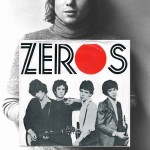
By Mike Stax
Greg Shaw (1949-2004) should need no introduction here. After rolling out one of the seminal rock fanzines, Who Put the Bomp (and its late ‘60s predecessor Mojo Navigator), he founded Bomp Records in 1974, one of the most respected independent labels of the era, releasing records by the likes of the Flamin’ Groovies, Devo, the Weirdos, DMZ, Iggy & the Stooges, and a band from Chula Vista, California called the Zeros.
Part of Southern California’s first wave of punk rock bands, the Zeros released two singles on Shaw’s label: “Wimp” b/w “Don’t Push Me Around” in 1977, and “Beat Your Heart Out” b/w “Wild Weekend.” Both are widely regarded as among the best American punk singles of the late ‘70s. The Zeros’ place in rock ‘n’ roll history was already etched in stone by the time the original band broke up around 1981.
So ten years later, having recently releasing an LP anthology of the band’s recordings, Shaw was surprised to receive a letter from some high-powered Beverly Hills attorneys threatening legal action because the name “Zeros” infringed on the “statutory and common law rights” of their clients, a new band of apparently uninformed LA metal douche-bags who were calling themselves… the Zeros.
Greg was never one to concern himself with legal niceties so he took to his typewriter and bashed out a response in short order. It’s classic Greg Shaw.
“Our Zeros record is a repackage of classic late ‘70s tracks by one of the founder bands of the LA music scene, active 1977-81,” he helpfully pointed out. “The band you represent, on the other hand, are upstarts of recent years, whose use of the name is possible only by the forbearance of those who bear the rights of original usage. Moreover, your lot are well known as low-brow glam metal posers, whose music in no way resembles that of the original Zeros, and the packaging of the respective albums bears this out.”
After some more bon mots, Shaw concludes: “I really wouldn’t worry about it, guys. Our record sold about 600 copies. Your Beverly Hills lifestyles are not threatened.”
He signed off: “Yours for rock & roll.”
The original Zeros—Javier Escovedo, Robert Lopez, Hector Penalosa and Baba Chenelle—continue to be musically active in various forms. Escovedo recently released a new album, Kicked Out of Eden. Lopez is world famous as El Vez. Penalosa plays with the Baja Bugs. And various configurations of ex-members still play occasionally as the Zeros.
On the other hand, the “low-brow glam metal posers,” to the best of my knowledge, were never heard from again—at least not in that form. •
Both letters are reproduced here for your pleasure by permission of Suzy Shaw at Bomp Records.
